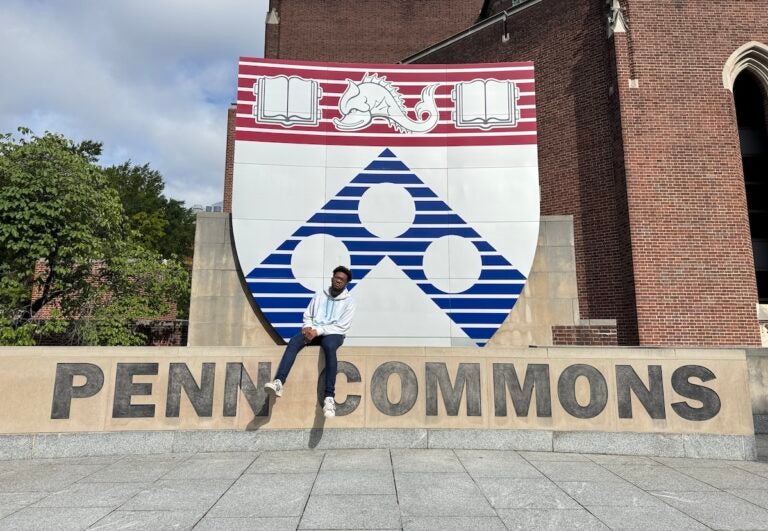The pursuit of admission to prestigious Ivy League universities is intensifying among students, with many feeling overwhelmed and burned out. As parents and educators emphasize academic excellence, the pressure on young learners is becoming increasingly unsustainable.
Over decades, institutions such as **Harvard**, **Yale**, and **Princeton** have represented the pinnacle of educational achievement. A degree from these elite schools is often viewed as a pathway to success, promising a secure future. Yet, the competition to gain admission to these universities now begins at an alarmingly young age. Students face escalating expectations for perfect grades, high standardized test scores, extensive extracurricular involvement, and notable community service.
For **Selah Derby**, a 17-year-old high school senior, the journey toward her Ivy League aspirations began in the third grade. She recalls telling herself, “I’m going to Harvard because I want to be president of the United States.” This early ambition set the stage for a relentless pursuit of perfection that leaves little room for error. “I can’t make mistakes,” Selah states, reflecting the internalized pressure many young students experience.
The phenomenon of “Ivy League Fever” is not limited to Selah. Throughout the United States, students, often still in elementary school, internalize the belief that their future hinges on acceptance to one of these eight prestigious institutions. This mentality fosters anxiety, self-doubt, and a cycle of overwork that persists even in the face of success.
**Emmy McGill**, also 17, shares her struggles with this competitive culture. “I was looking online at these videos where people were talking about their extracurriculars — insane things like internships with U.S. senators,” she notes. Emmy’s experience highlights how the digital age amplifies comparisons among peers, leading students to feel that achieving high grades alone is insufficient.
According to **Pawan Dhingra**, author of *Hyper Education: Why Good Schools, Good Grades, and Good Behavior Are Not Enough*, the rising competition reflects a cultural shift in defining academic achievement. The expectation to excel beyond peers creates a new normal where even being at grade level feels inadequate. Dhingra explains, “Now being at grade level starts to feel like you’re behind.”
Social media platforms exacerbate this pressure, turning college admissions into a public performance. Students often post “decision reaction videos,” capturing their emotional responses to acceptance or rejection letters. These moments, intended to be personal milestones, become content for digital audiences. Emmy observes, “There’s such a culture of comparison, especially with the internet now.”
The relentless competition contributes to what psychologists term “achievement inflation.” This concept suggests that as students strive to outdo one another, the bar for success continually rises, creating a scenario where an impressive resume no longer guarantees admission. Selah articulates the anxiety that accompanies this race: “If I fail to succeed at what I’ve placed myself to do, then I really like it scares me that I’ll never truly be happy.”
Dhingra warns that the implications of this pressure extend beyond academics, often resulting in burnout, anxiety, and depression. He emphasizes the importance of genuine interest over externally imposed expectations. “The pressure becomes harmful when it is rooted in a kid’s genuine interest,” he explains. Parents and students must reframe success from a focus on prestige to a more personal and sustainable definition.
Acceptance rates at Ivy League schools underscore the competitive nature of this pursuit. For the **class of 2028**, **Harvard** admitted only **3.6 percent** of applicants, while **Yale** and **Penn** admitted **3.9 percent** and **5.5 percent**, respectively. The reality is that rejection is not only possible but often inevitable.
As Selah approaches her senior year, the uncertainty of her future looms large. “Other people get to just enjoy school. For me, it’s about one thing,” she remarks. The weight of expectation can feel suffocating, leading her to question her self-worth should she not gain admission.
**Ohm Desai**, a recent graduate of the University of Pennsylvania’s Wharton School of Business, understands this pressure well. He reflects on his experience, stating, “I think it’s worth it because I achieved it — not because of the intrinsic value that Wharton in itself provides.” His perspective reveals a paradox: the value of gaining admission often overshadows the actual educational experience.
For many students, including Selah and Emmy, the challenge lies not only in gaining admission but in recognizing their worth beyond an acceptance letter. They must navigate the pressures, setbacks, and small victories along the way.
In the end, while Ivy League institutions may promise prestige, the true measure of success could be the resilience and growth that students experience throughout their academic journeys. As they confront the challenges of high expectations, it is essential for them to remember that their value is not defined by the institutions they attend but by their personal growth and achievements.
